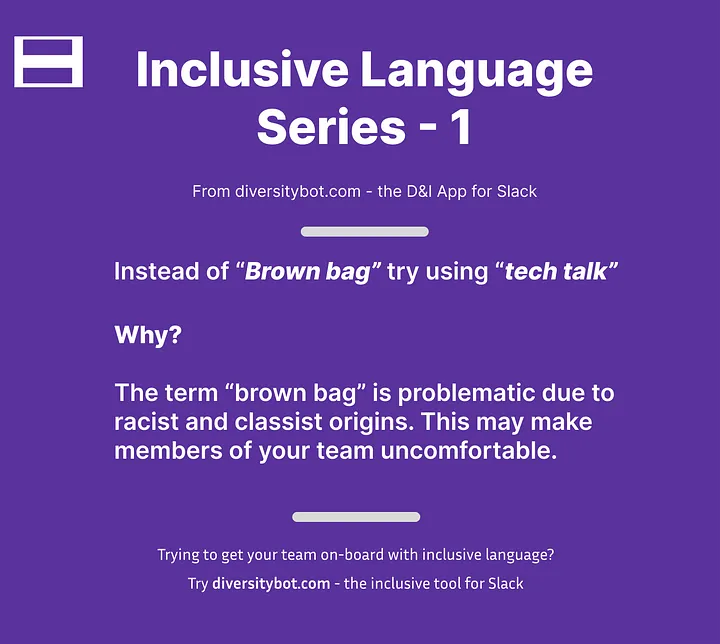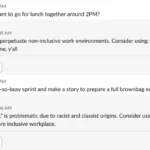When was the last time you attended a “brown bag” lunch or seminar? The term is ubiquitous in professional and academic settings, referring to events where attendees bring their lunches, which were historically carried in brown paper bags. However, this seemingly innocuous phrase has a dark and discriminatory history that we can no longer ignore.
The “brown bag” has its origins in the racist “brown paper bag test” once used to enforce colorism and segregation. In this abhorrent practice, a brown paper bag was held up as the arbitrary benchmark for determining who possessed “adequate” lightness of skin tone to be granted rights, privileges, and admission into certain spaces and organizations. Those whose complexions were judged to be darker than the bag were subjected to discrimination and exclusion.
While the paper bag test is rightfully condemned today as an ugly relic of racism, its troubling legacy persists through the continued use of coded language like “brown bagging.” Every time we carelessly invoke this term, we risk reopening the wounds of America’s oppressive past for our colleagues, peers, and community members. The hurt is perpetuated by forcing people of color to relive these injustices through repeatedly encountering the same demeaning references and associations.

Some may argue that by today’s standards, “brown bag” is a harmless phrase detached from its historically racist connotations. They might claim that few still recognize or intend its offensive undertones. However, such arguments merely expose our collective lack of empathy and willful ignorance about how marginalized groups experience persistent prejudice and microaggressions. Just because we fail to connect the dots doesn’t negate the very real pain inflicted.
When we become aware that certain terms or practices are rooted in discrimination, no matter how ubiquitous or “innocuous” they seem, we have an ethical obligation to retire them from our lexicon and professional conduct. Inaction is a signal that we are more invested in preserving convenience and tradition than promoting equity and human dignity. It’s a tacit endorsement that the historical dehumanization of entire groups is an acceptable cultural toll.
There’s also the intersectional classist dimension we cannot overlook. The concept of bringing humble “bag lunches” to work carries elitist connotations about socioeconomic status and who is deemed “professional” enough to participate in academic and corporate spheres traditionally dominated by the privileged classes.
Ultimately, rejecting discriminatory language and practices is about respect – respect for those who have endured injustice, respect for inclusivity in our organizations, and respect for ourselves in striving to become more conscious upholders of human rights. If we want to build an equitable society, we must relegate terms like “brown bag” to the proverbial dustbins of history where they belong.
There are so many alternative phrases we could use instead that accomplish the same descriptive aims without triggering harm – “lunch seminar,” “lunch discussion,” or simply “talk with provided lunch.” Replacing exclusionary language with inclusive terminology is a small but significant step towards becoming more nurturing communities.
If you are trying to get your team on board with inclusive language. Try diversitybot.com — the inclusive tool for Slack.


